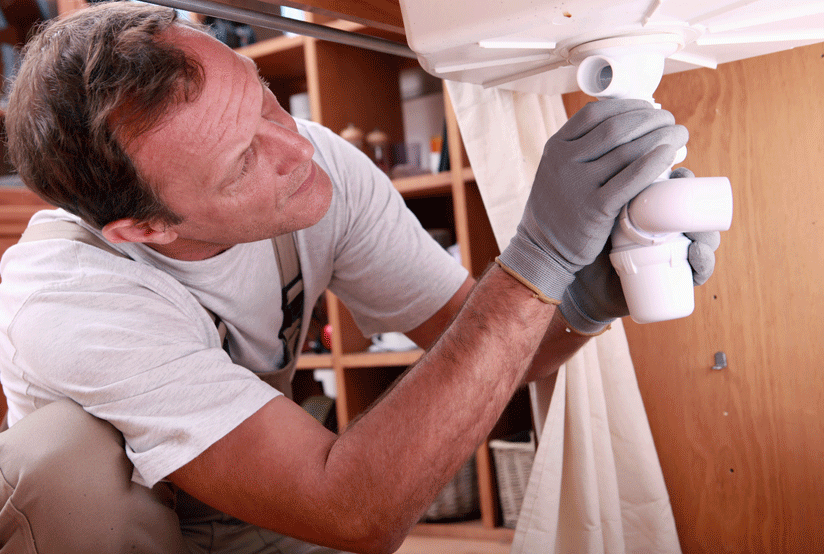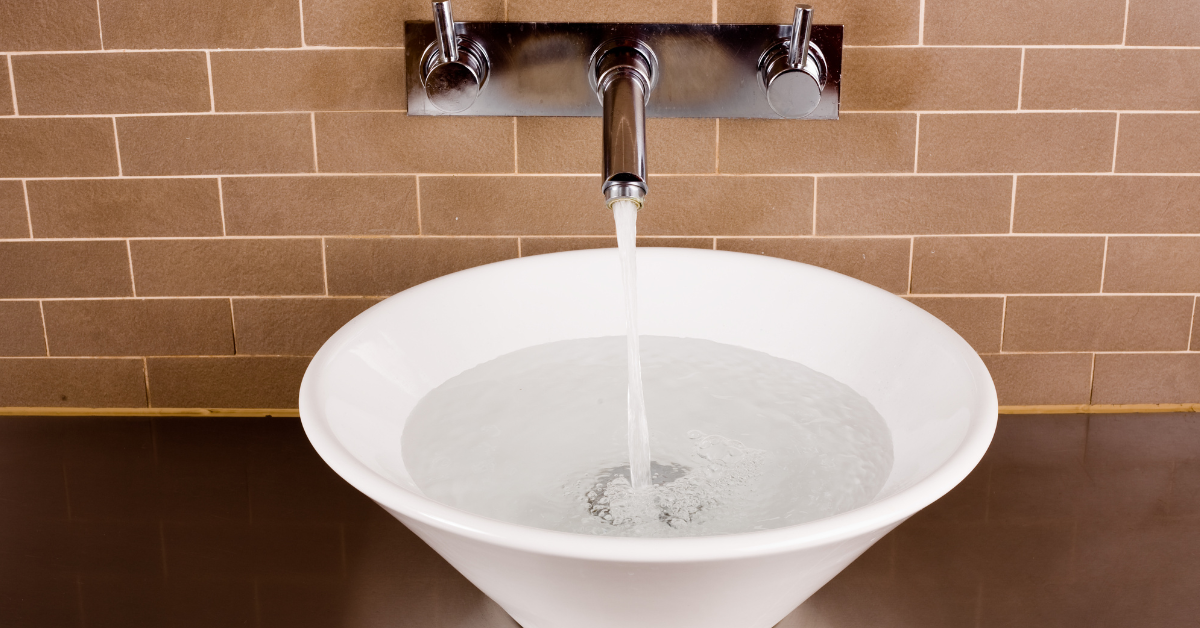Were you in search of information involving How to Fix a Slow Draining Sink?

Intro
We have actually all existed: You're brushing your teeth or cleaning your hands, and you observe the water pooling in the sink. Rather than quickly swirling down the tubes, it remains, transforming your once-refreshing early morning regimen right into a miniature overload scene. A slow-draining sink isn't just irritating; it's commonly an indicator of larger pipes problems hiding below the surface. The good news is that a lot of slow-draining sinks can be fixed with a little expertise, a few standard tools, and some perseverance. Prepared to tackle this task head-on? Allow's roll up our sleeves and dive right in.
Comprehending the Sources Of a Slow-Draining Sink
Before you start poking around in your pipes, it aids to recognize what might be causing the stagnation. Recognizing the origin makes it much easier to select the best solution.
Common Wrongdoers Behind Slow Drain
So, what's obstructing things up? Commonly, it's a mixture of everyday debris-- assume hair, soap residue, toothpaste deposit, and leftover food bits. Gradually, these little bits collect and cling to the pipe wall surfaces, progressively tightening the flow and making it harder for water to travel through. In many cases, mineral deposits from tough water can likewise contribute to the crud, creating the best tornado for persistent obstructions.
When is it Time to Take Action?
If you notice the water draining pipes slower than typical, it's an excellent concept to intervene faster instead of later on. Waiting as well long can result in finish clogs, undesirable smells, or even pipe damages. If the water takes greater than a few seconds to clean out after shutting off the faucet, consider it a warning and get ready to place on your do it yourself hat.
Devices and Materials You'll Need
The right tools make all the difference. Luckily, you won't require a totally equipped plumbing technician's van to finish the job.
Essential Devices for Do It Yourself Fixes
A plunger is your go-to starting point. A little, sink-sized plunger creates suction that can dislodge small obstructions. For more consistent obstructions, a drainpipe snake (sometimes called a plumbing technician's auger) functions wonders. A set of handwear covers, a flashlight, and maybe a pair of protective goggles are likewise handy.
Advised Cleaning Solutions
Mild meal soap and warm water can assist break down oily build-up. A mix of cooking soda and vinegar is a time-tested natural home remedy, and enzymatic cleaners use an even more environment-friendly technique. Maintain chemical drainpipe cleansers as a last resource, as they can be harsh on your pipes.
Safety First: Safety Measures and Prep work
Before you launch into unclogging setting, think of security. You're handling potentially dirty water and particles, so slip on a pair of handwear covers. If you're making use of chemical cleaners, make sure the area is well-ventilated and follow the guidelines on the label.
Safety Gear and Work Area Configuration
Lay down some old towels or rags around the sink location to capture dashes. Remove any kind of products that might get in your way, like soap dispensers or tooth brush holders. Make sure you have good lights-- get hold of a flashlight if required.
Step-by-Step Overview to Taking Care Of a Slow-Draining Sink
Currently, let's enter the nitty-gritty. This detailed process will certainly direct you with simple methods to recover your sink's water drainage.
Step 1: Get Rid Of and Clean the Stopper
Commonly, the stopper (that small plug you push down to block water) is the first perpetrator. Remove it very carefully and wipe any type of hair or crud trapped around its base. Wash it completely prior to placing it back in place.
Action 2: Make Use Of a Bettor to Displace Particles
Got that bettor all set? Setting it over the drain and provide it a couple of company pumps. The idea is to produce suction that can loosen up any kind of clog. If you see bits of particles drifting up, you get on the best track.
Step 3: Try a Drain Snake or Cord Wall Mount
If the bettor does not suffice, it's time to highlight the drainpipe snake. Gently feed it right into the drain and twist as you go. You could really feel some resistance-- that's likely the blockage. Keep twisting and drawing until you eliminate the blockage. If you do not have a drain snake, a corrected cord wall mount can operate in a pinch.
Tip 4: Apply a DIY Drainpipe Cleanser
A natural cleaner made from cooking soft drink and vinegar can break down recurring grime. Pour half a cup of cooking soft drink into the drain, followed by half a cup of vinegar. Allow it fizz for around 15 minutes, then flush with warm water. This chemical reaction often does wonders for minor obstructions.
Step 5: Reconstruct and Test the Sink
Put whatever back together and run the faucet. Does the water now swirl away at a respectable speed? If yes, provide on your own a pat on the back. If not, don't anguish-- there are still a couple of more dress up your sleeve.
Different Methods for Stubborn Clogs
Not all blockages are produced equal. If your sink still declines to comply, consider these alternate services.
Sodium Bicarbonate and Vinegar Technique
We already touched on this, however it's worth keeping in mind once again. This mild, environmentally friendly technique is safer than chemical cleaners and typically rather effective.
Enzymatic Drain Cleansers
Enzyme-based cleansers utilize natural germs to absorb organic matter. They're a superb choice if you're seeking to stay clear of rough chemicals. Just bear in mind, they may take a bit longer to function their magic.
Chemical Drain Cleaning Company: Benefits And Drawbacks
Chemical cleaners can blast through hard obstructions fast, but they're not without disadvantages. They can generate warmth and fumes, damages pipelines if utilized excessively, and pose ecological threats. Use them sparingly, and always adhere to the directions carefully.
Preventive Measures to Maintain Your Sink Flowing
Prevention is the very best remedy. By embracing a couple of simple behaviors, you can keep your sink from slowing down in the first place.
Regular Cleaning Up Behaviors
Wipe down the sink basin and component location regularly. Get rid of hair or food particles prior to they have a possibility to wash down the drainpipe.
Staying Clear Of Hazardous Materials Down the Drain
Think twice prior to disposing coffee premises, grease, or fibrous vegetable scraps down the sink. These culprits hold on to pipe walls, creating clogs gradually.
Regular Upkeep Checks
Arrange a fast month-to-month inspection. Run warm water through the sink for a couple of mins, paying attention to the flow. If it appears sluggish, act quick before it ends up being a full-blown obstruction.
When to Call a Professional Plumbing
In some cases, despite exactly how tough you attempt, that clog just will not budge. That's when it's time to bring in the pros.
Indications That Indicate an Extra Severe Issue
If your sink drains slowly regardless of several attempts, or if you see water supporting in other fixtures (like your shower or commode), you might have a much more significant plumbing problem lurking much deeper in the system.
Balancing DIY Initiatives with Specialist Assistance
While DIY can save you cash and supply a feeling of achievement, there's no pity in calling a specialist. An expert plumber can assess your entire pipes arrangement, making certain there's no underlying damages or long-term issue that could cost you extra in the future.
Contrasting Costs and Long-Term Solutions
Prior to choosing, take into consideration the big picture. An affordable, quick fix could address the problem temporarily, yet purchasing a much more irreversible solution could conserve you money and stress in the future.
Weighing the Expenditures of DIY vs. Specialist Fixes
DIY fixes typically set you back little bit more than the cost of a bettor or a bottle of baking soda. Expert services, on the other hand, featured a price but may protect against repetitive concerns and expensive fixings later on.
Investing in Quality Fixtures and Upgrades
If your sink's style contributes to frequent obstructions, it may be worth updating to higher-quality components or changing the plumbing format. Consider this an investment in your house's performance and convenience.
Conclusion
A slow-draining sink can seem like a small inflammation, yet it's typically an indicator that your plumbing needs a little tender loving care. By comprehending the origin, employing the right devices and techniques, and dedicating to simple preventive measures, you can maintain your sink moving freely. And when all else fails, never be reluctant to call in an expert-- your home's plumbing deserves the investment in treatment and upkeep.
Three Common Ways to Fix a Slow Drain
Baking Soda Method
Boil a full pot of water. Measure out cup of baking soda and pour it down the drain. Then take cup of the magical cleansing substance known as white vinegar and drop that down there too. Allow the mixture to fizz in the drain for five minutes as the vinegar and baking soda combine. Now dump in that whole pot of boiling water. This combination of cleaning substances should clear out anything that is causing your sink to drain slowly. If it doesn t...
Zip-It
If the baking soda method doesn t clear out your drain, it may be because a significant amount of hair and/or other debris has collected there and you need to remove it. Purchase a Zip-It tool at any home improvement or hardware store and insert it into your drain. It will catch any collected hair or debris that s blocking the flow of water. Pull it out. If it s got a big clump of hair, etc. on the end, you ve probably got your culprit.
Drain Cleaner
If these methods don t work, there is the standard drain cleaner that you can also buy in a hardware store or even your local grocery store. It s better if you can use a household solution, but these drain cleaners often work in a pinch. They re very simple to use. You generally just dump them in your drain and wait. If even this method is not effective, it may be time to call the plumber.
https://www.mrrooter.com/oneida/about-us/blog/2017/july/three-common-ways-to-fix-a-slow-drain/

We were made aware of that report about 4 Tips to Fix a Slow Draining Sink through a friend on a different web address. If you enjoyed our blog posting kindly do not forget to pass it around. Thanks a lot for your time. Come back soon.
Click Here